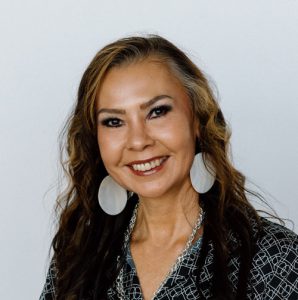OLYMPIA–The Washington State Recreation and Conservation Office has hired a member of the Spokane Tribe of Indians as its first tribal affairs director.

Dawn Pullin joined the agency from the Washington State Patrol, where she served as the tribal liaison for nearly four years, working to address the missing and murdered indigenous persons crisis.
“We’re thrilled to have Dawn join us,” said Megan Duffy, director of the agency. “Much of our work requires close consultation with tribes around the state and her expertise and knowledge will help us work more efficiently and communicate better with our tribal partners.”
Pullin served as the Spokane Tribe’s chief executive officer and its director of the Temporary Assistance for Needy Families program. She also worked as contracting officer for Indian Health Services, an agency within the federal Department of Health and Human Services. Pullin recently started the nonprofit, Tribal Nation Building, to support tribal sovereignty and nation building and independence. She is a member of the Spokane Regional Domestic Violence Coalition Board and the Innovations Human Trafficking Collaborative Board, and teaches fitness classes at Gonzaga University. Pullin has a bachelor of arts degree in business administration from Eastern Washington University and a master of business administration degree from the University of Phoenix.
“The work of the Recreation and Conservation Office is so important to tribes and all residents of Washington,” Pullin said. “The funding the agency distributes helps ensure that Washington takes care of its rich natural legacy and remains a great place for the people and animals that live here. Those all are important values in tribal communities and I look forward to strengthening those ties.”
The Recreation and Conservation Office is a small state agency that administers state and federal grants to create recreational opportunities, recover salmon and orca from near extinction and conserve wildlife habitat and working farms and forests. The agency distributes about $209 million in grants annually. It also is home to the Governor’s Salmon Recovery Office, orca recovery coordinator and Invasive Species Council.